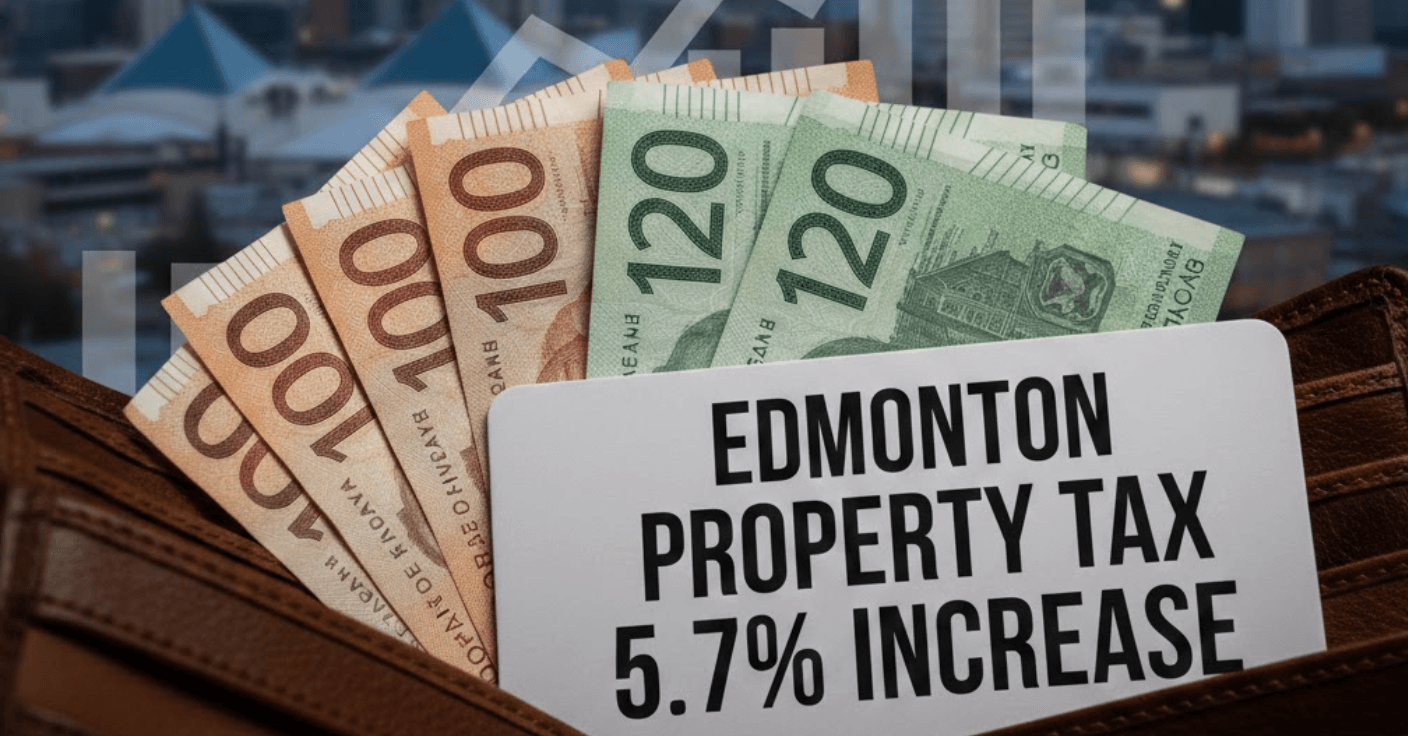Edmonton Scoop
Archives
Edmonton Property Tax Increases: 5.7% Hike Finalized for 2025
SIGN UP FOR OUR NEWSLETTER
Edmonton Property Tax Increases Finalized: What a 5.7% Hike Means for Your Wallet |
After heated debates and multiple revisions, City Council has locked in the 2025 property tax rate. Here’s a breakdown of where the money is going and how it will impact local homeowners. |
Edmonton homeowners are now facing the hard reality of a significant financial adjustment as the city finalized its budget for the coming year.
The contentious debate over Edmonton property tax increases has concluded, with City Council approving a 5.7% municipal tax levy for 2025.
This decision didn't come easily.
It followed a tense budget process that saw the initial proposed hike of a staggering 8.1% get whittled down through a series of difficult negotiations and strategic financial shifts.
For the average Edmonton household, this translates to paying approximately $763 in municipal taxes for every $100,000 of their home's assessed value.
That’s an increase of $51 from 2024, a figure that has many local residents watching their finances closely.
The path to this final number was fraught with political maneuvering and fiscal pressure.
Mayor Amarjeet Sohi was central to the effort to reduce the initial proposal, introducing an omnibus amendment that utilized various financing sources to soften the blow to taxpayers.
Even after being lowered to 6.1% in late 2024, a final adjustment in the spring brought the rate down to 5.7%, partly due to changes in provincial grants.
However, the decision was not unanimous, with councillors like Tim Cartmell voting against the budget, signaling a deep divide on how to best manage the city's finances amid rising costs.
So, where is this extra money going?
City officials point to a perfect storm of economic challenges: rapid population growth, persistent inflation, and the ever-growing demand for robust municipal services.
The approved Edmonton property tax increases are earmarked to maintain and enhance the core services residents rely on daily.
This includes everything from road maintenance and snow removal to funding for our police and fire rescue services.
A significant portion of the city's capital budget, which is supported by property taxes, is being funnelled into major, city-shaping infrastructure projects.
The roar of construction across Edmonton is a testament to these investments.
Massive transit projects like the Capital Line South LRT extension and the ongoing work on the Valley Line West LRT are designed to connect our sprawling communities and prepare for future growth.
These are generational projects with billion-dollar price tags, aimed at making it easier for Edmontonians to move around the city without a car.
Beyond transit, the budget supports the Yellowhead Trail Freeway Conversion Program and upgrades to Terwillegar Drive, two critical arteries for commuters.
It also fuels the Neighbourhood Renewal Program, which will see upgrades to residential roads, sidewalks, and alleyways in 11 different communities this year alone.
Another key priority for the city is addressing the housing affordability crisis.
While not solely funded by this tax levy, the city's budget includes commitments to affordable housing through initiatives like the Affordable Housing Investment Program (AHIP).
This program provides crucial grant funding to help non-profit and private sector groups build more affordable units, especially for vulnerable populations.
Recent joint funding announcements with the provincial and federal governments will inject over $200 million into creating thousands of new affordable housing units across Alberta, with a significant share dedicated to projects in Edmonton.
Downtown revitalization is also a major focus, with work accelerating on the new Warehouse Park, a green space designed to transform vacant lots into a vibrant community hub.
For many families, however, these long-term goals are overshadowed by the immediate financial pinch.
Public reaction has been mixed, with many residents expressing concern about affordability.
The rising cost of living, from groceries to mortgages, makes any increase in household expenses a challenge.
It’s important to remember that the 5.7% municipal increase is only part of the story.
The total property tax bill that arrives in the mail also includes the provincial education tax, which is set by the Government of Alberta and has its own rate of increase.
This often leads to confusion and frustration, as many homeowners blame the city for the entire bill.
City administration has argued that years of keeping taxes low, particularly during the pandemic, meant the city wasn't keeping up with inflation or population growth, making larger increases necessary now to avoid service cuts.
Mayor Sohi has stated that the budget strikes a balance between easing the affordability crisis and investing in the core public services that people rely on.
The debate is a familiar one in growing cities: how much should current residents pay for the future of their community?
As tax notices are mailed out, every homeowner in Edmonton will have to answer that question for themselves.
Our reader's FAQ on Edmonton Property Tax Increases
Q: What is the official property tax increase in Edmonton for 2025? A: Edmonton City Council approved a 5.7% municipal property tax increase for 2025. This was finalized after an initial proposal of 8.1% was lowered during budget deliberations.
Q: What will the property tax increase fund? A: The additional revenue will help maintain core city services like police, fire rescue, and road maintenance. It also funds major capital projects including LRT expansion (Capital Line South and Valley Line West), neighbourhood renewal programs, and infrastructure upgrades like the Yellowhead Trail conversion.
Q: How does this affect the average homeowner? A: The average Edmonton homeowner will pay about $51 more in municipal property taxes for every $100,000 of their property's assessed value compared to 2024. The final impact depends on individual property assessment changes. |


